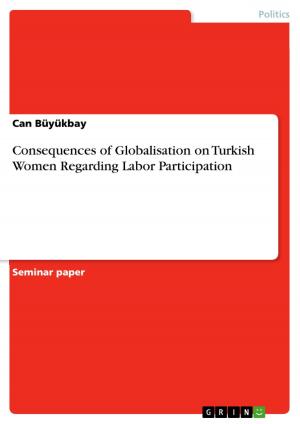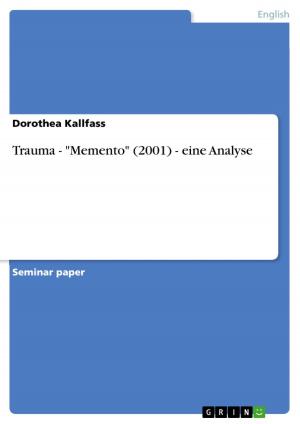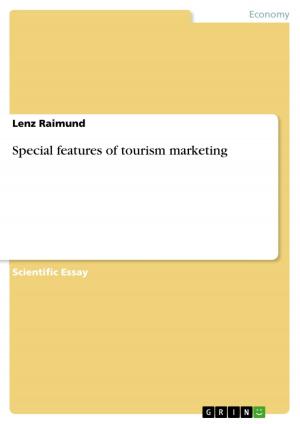Knowledge Commodification in German Speaking Universities
Nonfiction, Reference & Language, Education & Teaching, Higher Education| Author: | Andreas Schulz | ISBN: | 9783668199521 |
| Publisher: | GRIN Publishing | Publication: | April 18, 2016 |
| Imprint: | GRIN Publishing | Language: | English |
| Author: | Andreas Schulz |
| ISBN: | 9783668199521 |
| Publisher: | GRIN Publishing |
| Publication: | April 18, 2016 |
| Imprint: | GRIN Publishing |
| Language: | English |
Seminar paper from the year 2015 in the subject Pedagogy - Higher Education, grade: 2, University of Vienna (Soziologie), course: Class Relations in the Global Digital Economy, language: English, abstract: The following paper shall examine the processes of commodification in the German speaking academic context and illustrate the 'state of the art' of research of the commodification of academic labor on several dimensions: (i) by university research institutions and (ii) by student organizations. It should illustrate, in reference to the theoretical framework by Ursula Huws, the institutional 'discussion' of the academic commodification and should demonstrate that there is a lack of research about the commodification and a result of this lack is a missing discourse about these specific aspect of the economization of the university system in Germany, Austria and Switzerland. The paper is structured in three parts; the first chapter will gives a theoretical introduction to the means of the commodification of intellectual activity and when we talking about economization and the resulting new interdependencies I will connect the Marxist based Framework by Huws with the Governance Concept of Michael Foucault. After these theoretical embedding it follows an empirical overview about the situation in the German speaking academic landscape. Then I like to give a reflection on the topic, sum up the research findings and like to raise some further questions. 'Commodification as the process of transforming things into objects for sale has become a totalizing cultural force' (T-H-R 2003: 5) and it is described as the 'essence of our time' (Ley & Harriss 2012). Under advanced capitalism , commodification expands into all corners of social and political life . But not everything useful is a commodity. What makes anything a commodity is the possibility of trading it for profit? They are not only means of production that are traded in this process, not only raw materials and machinery, but also labor or knowledge.
Seminar paper from the year 2015 in the subject Pedagogy - Higher Education, grade: 2, University of Vienna (Soziologie), course: Class Relations in the Global Digital Economy, language: English, abstract: The following paper shall examine the processes of commodification in the German speaking academic context and illustrate the 'state of the art' of research of the commodification of academic labor on several dimensions: (i) by university research institutions and (ii) by student organizations. It should illustrate, in reference to the theoretical framework by Ursula Huws, the institutional 'discussion' of the academic commodification and should demonstrate that there is a lack of research about the commodification and a result of this lack is a missing discourse about these specific aspect of the economization of the university system in Germany, Austria and Switzerland. The paper is structured in three parts; the first chapter will gives a theoretical introduction to the means of the commodification of intellectual activity and when we talking about economization and the resulting new interdependencies I will connect the Marxist based Framework by Huws with the Governance Concept of Michael Foucault. After these theoretical embedding it follows an empirical overview about the situation in the German speaking academic landscape. Then I like to give a reflection on the topic, sum up the research findings and like to raise some further questions. 'Commodification as the process of transforming things into objects for sale has become a totalizing cultural force' (T-H-R 2003: 5) and it is described as the 'essence of our time' (Ley & Harriss 2012). Under advanced capitalism , commodification expands into all corners of social and political life . But not everything useful is a commodity. What makes anything a commodity is the possibility of trading it for profit? They are not only means of production that are traded in this process, not only raw materials and machinery, but also labor or knowledge.















